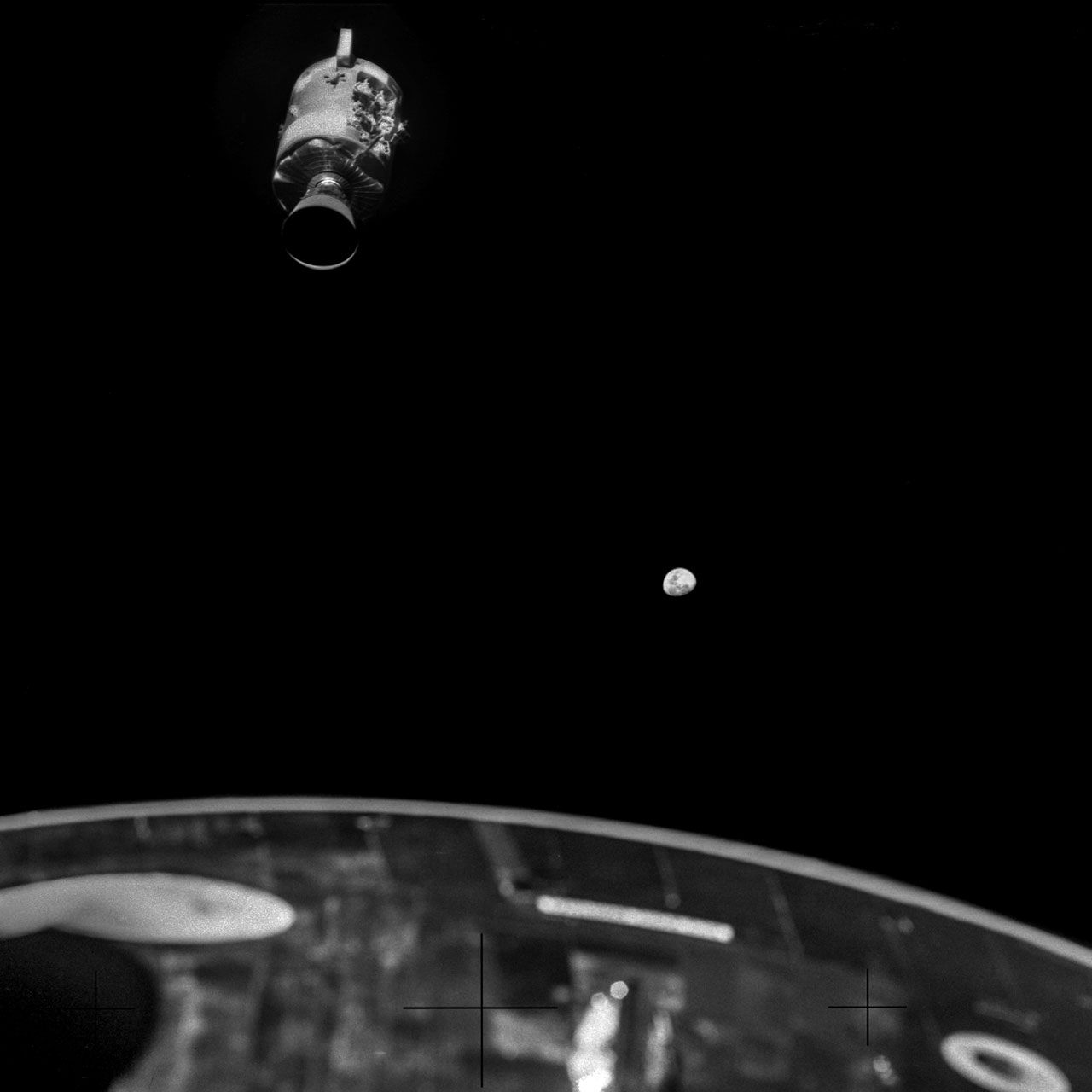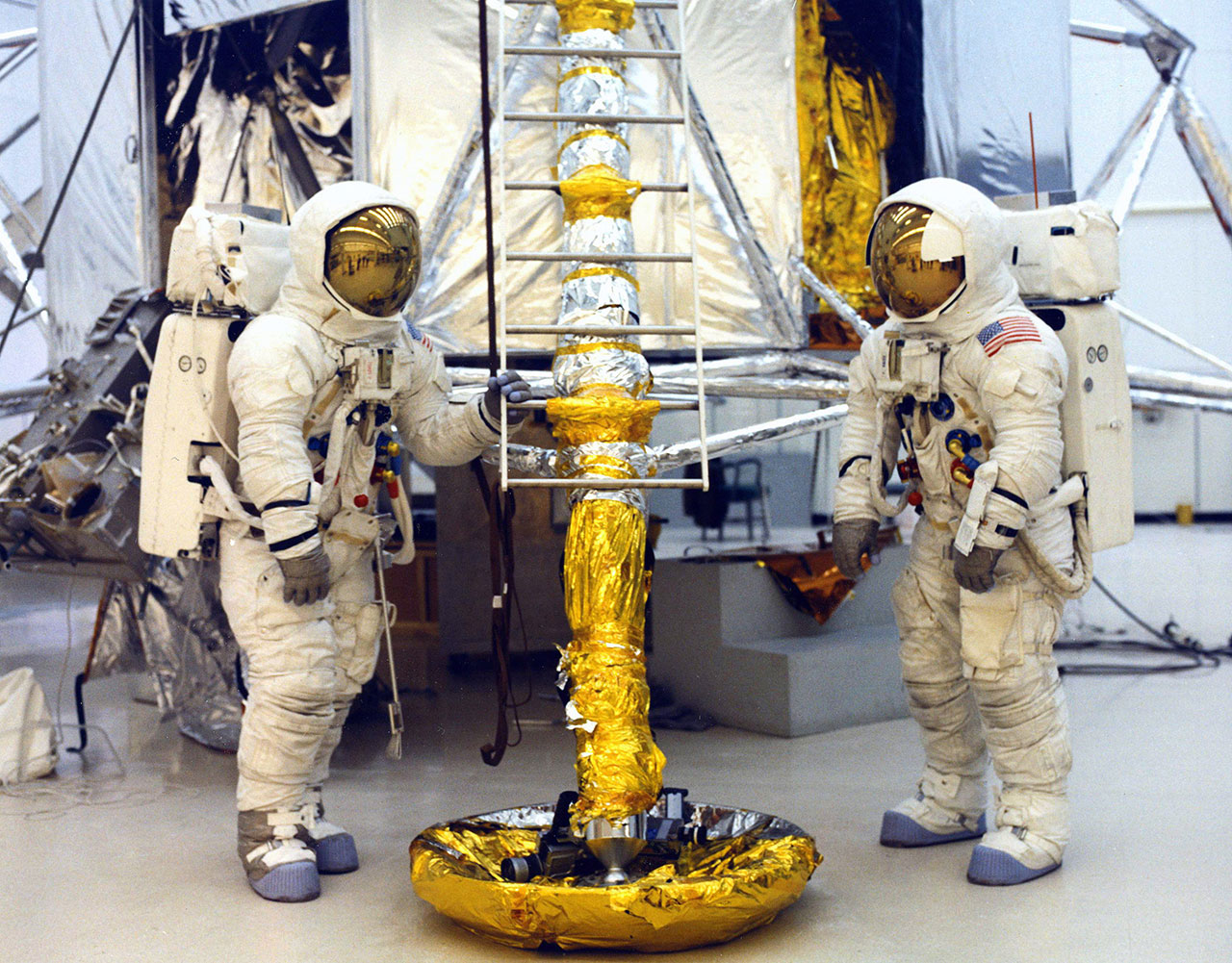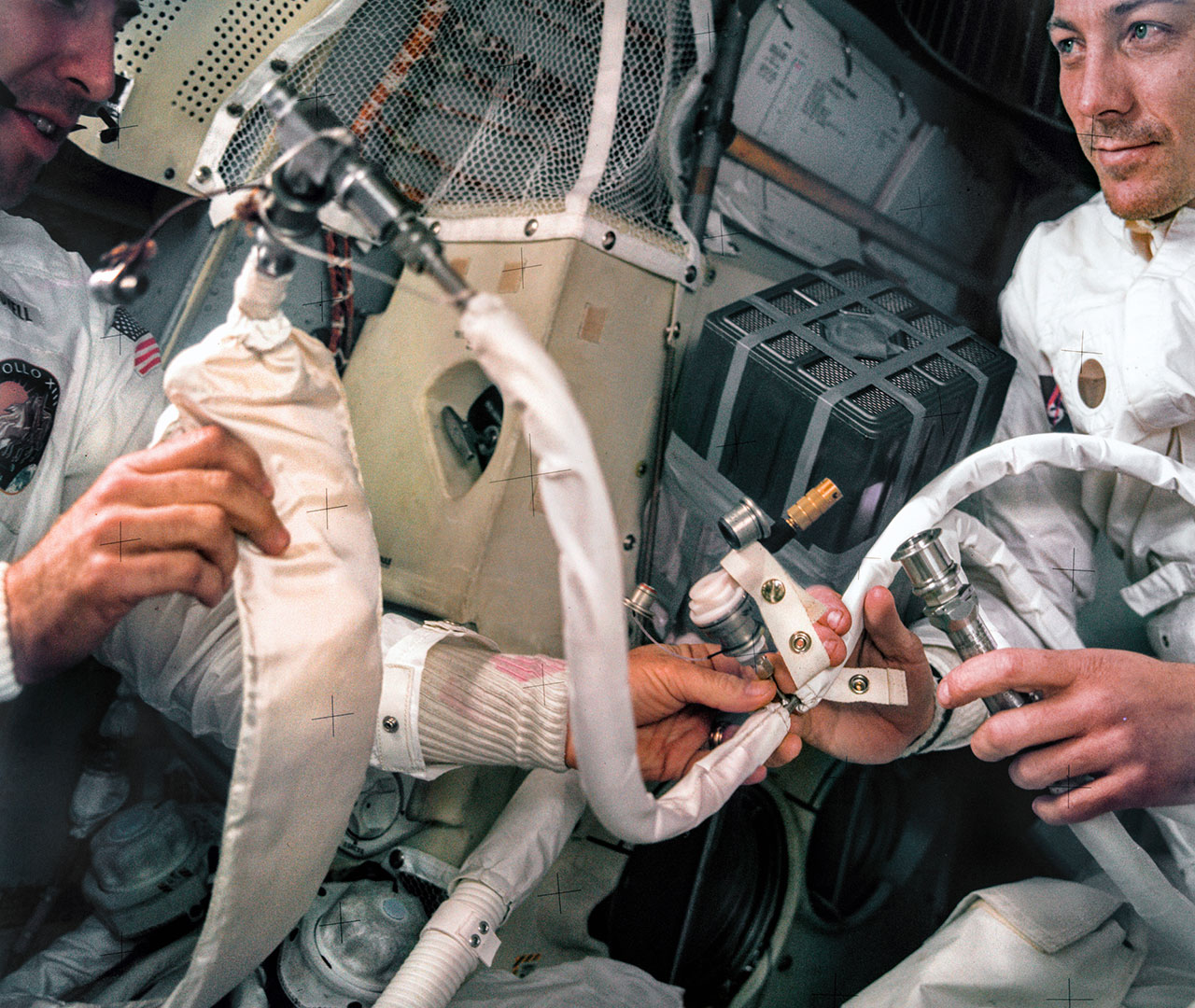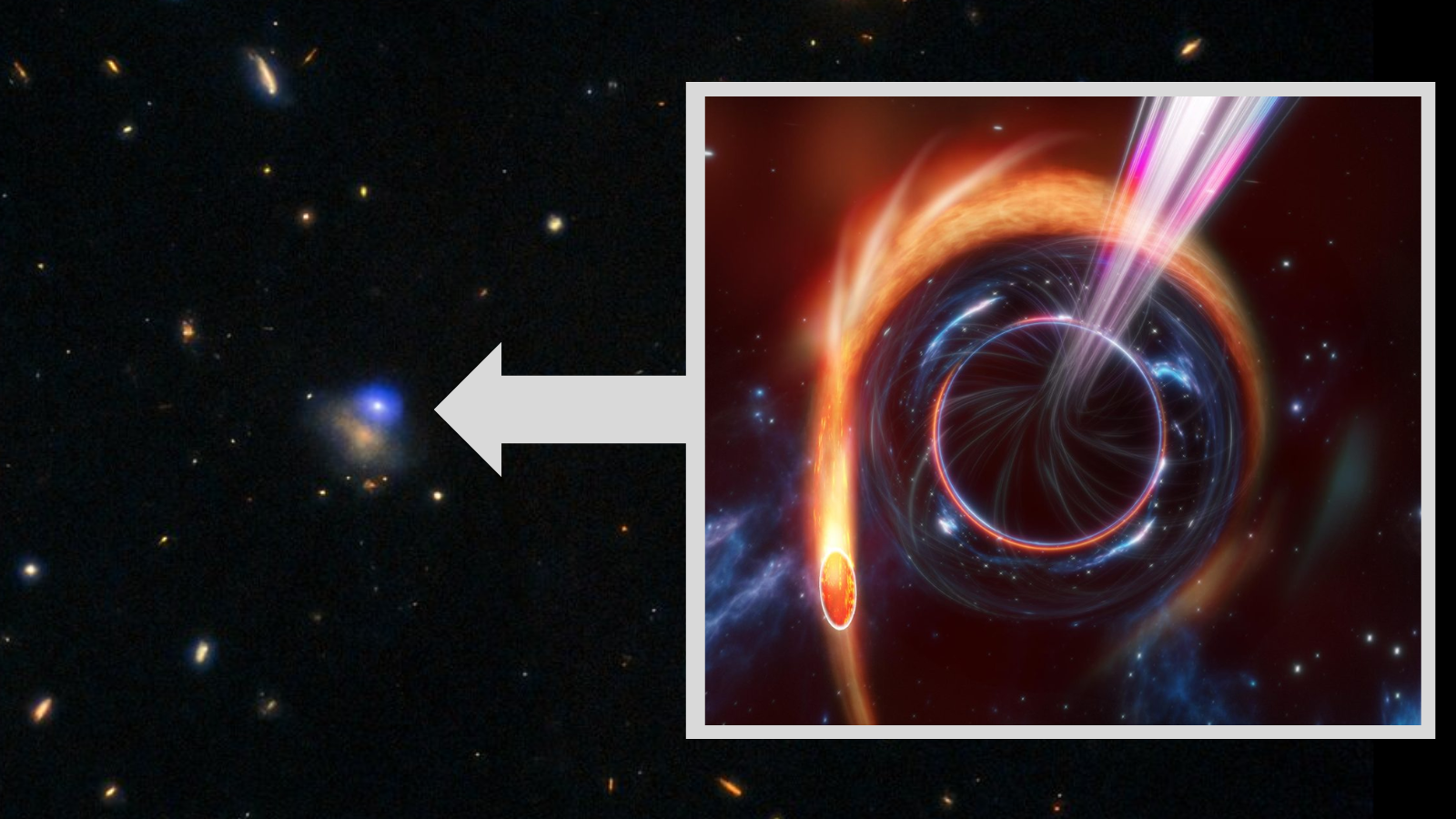Apollo 13 astronauts Jim Lovell and Fred Haise on their moon mission 50 years later
"We never considered an explosion."
It was not a scenario for which they had trained.
As the astronauts set to be the fifth and sixth people to walk on the moon, Jim Lovell and Fred Haise had undergone months of extensive preparation to carry out every aspect of NASA's Apollo 13 mission — including what to do if something went wrong.
But two days after their successful launch on April 11, 1970, mission commander Lovell, lunar module pilot Haise and command module pilot Jack Swigert were thrown into an emergency for which there was no plan. Fifty years ago today (April 13), the Apollo 13 crew "had a problem."
Apollo 13 at 50: NASA's 'successful failure' at the moon explained
More: See Apollo 13 as it happened with Apollo 13 in Real Time
"Problem solving with the system we had was suited to what we had to get done, as every mission had problems to deal with," Haise said in an interview with collectSPACE.com. "But we never considered an explosion, in the sense of being able to work around that."
"Normally, that would manifest in a loss of the vehicle and crew," he said.
And yet, that was exactly what Haise, Lovell and Swigert, as well as the teams of engineers in Mission Control, had to deal with. An oxygen tank, which had been unknowingly damaged during a pre-flight test, exploded, tearing apart the service module that provided the critical power and life support systems for the Apollo 13 command module.
Breaking space news, the latest updates on rocket launches, skywatching events and more!
Not only did the explosion rule out any chance of achieving a moon landing, it threatened to strand the astronauts in deep space. That they made it home safely, was as much due to the ingenuity of the teams that worked the problem on the ground as it was a matter of fortunate timing.
Apollo 13 timeline: The hectic days of NASA's 'successful failure' to the moon
"The explosion occurred on April 13, at just the right time to allow a return," said Lovell. "If the explosion occurred when we had lit our engine to go to the moon, in the beginning, we would have never had enough consumables in the lunar module to go all the way around the moon and come back home again. If the explosion occurred after we got into lunar orbit, or, heaven forbid, when we were on the lunar surface, Mission Control would have had to figure out why they left three guys at the moon."
Lovell and Haise spoke to collectSPACE about the 50th anniversary of the Apollo 13 mission (Swigert died of cancer in 1982). The two participated in separate interviews; their replies are presented together to comprise a single conversation.
collectSPACE (cS): After the explosion itself, was there a point where you felt that your chances of returning to Earth were not looking good?
James Lovell: When I noticed the red warning light saying that two out of our three fuel cells had just died, that was kind of a shock to me because that is where we got our electrical power for the whole flight. We would have to rely on battery power, which in the command module we didn't think would be sufficient.
It was a feeling of, "Holy cow! We have something really wrong here."
And I don't know why I did this, but I looked out the right window and that's when I saw that at a high rate of speed gas was escaping from the spacecraft. You could see a little plume of it. I then glanced at the oxygen gauges and one read zero and another was in the process of going down. That is when I really felt we were in a very dangerous situation.
Fred Haise: Before you go on one of these missions, you assume necessarily you're not going to get back.
I had no idea about the percentage [or] what odds there were. It was a matter of working through it with a number of the challenges and [hoping] that someone on the ground working at Mission Control would find the answers.
cS: Was there a point where you felt more confident about your survival?
Haise: I think the first time I thought we really had a chance to surely make it back was right after the first use of the lunar module's descent engine. We were then on a free return to get around the moon.
Jim Lovell asked me to compute the consumables, which I did, and I figured we would make it with power. I assumed the power we'd go down to was 18 amps — after that, we'd have to apply a lot more brain power if we got down even lower. But even at that level and even if we had a much longer return, we still made it on six batteries in the lunar module.
[I calculated] we'd run short of water about five hours before entry interface, but I knew from Apollo 11 data, where we deliberately had Neil [Armstrong] and Buzz [Aldrin] turn off the water before they left their lunar module in orbit and watched the systems die, that the first system to die was at about eight hours. So we were probably okay with water.
The one I did not figure, which actually turned out to be the most critical, was the lithium hydroxide [LiOH] cartridges. It didn't even occur to me.
[cS: The LiOH canisters scrubbed carbon dioxide from the cabin air. The solution, which called for using the command module's incompatible canisters in the lunar module, famously involved jerry-rigging a way to fit a literal square peg in a round hole using nothing but the spare parts they had aboard the spacecraft.]
cS: What if Apollo 13 never had a problem. Had you given any thought as to what were going to be your first words stepping onto the moon?
Haise: No, I wasn't planning any first words on the moon. I don't know if Jim was, he would have been the first out.
Lovell: No, this was 13, not Apollo 11.
Haise: Really I felt by that time, we were kind of past the historic things you might do. I was just really eager to get down the ladder and start to work.
The interview continues at collectSPACE, where Lovell and Haise discuss what personal items they would have left on the moon, what it was like to see the moon from orbit and if the cause of the Apollo 13 explosion was avoidable. PLUS, triskaidekaphobia!
- Apollo 13 50th anniversary exhibit to launch new space rental service
- Failure was not an option: NASA's Apollo 13 mission of survival in pictures
- Committee waves off landing Apollo lunar module on new $1 coin
Follow collectSPACE.com on Facebook and on Twitter at @collectSPACE. Copyright 2020 collectSPACE.com. All rights reserved.
OFFER: Save 45% on 'All About Space' 'How it Works' and 'All About History'!
For a limited time, you can take out a digital subscription to any of our best-selling science magazines for just $2.38 per month, or 45% off the standard price for the first three months.

Robert Pearlman is a space historian, journalist and the founder and editor of collectSPACE.com, a daily news publication and community devoted to space history with a particular focus on how and where space exploration intersects with pop culture. Pearlman is also a contributing writer for Space.com and co-author of "Space Stations: The Art, Science, and Reality of Working in Space” published by Smithsonian Books in 2018.
In 2009, he was inducted into the U.S. Space Camp Hall of Fame in Huntsville, Alabama. In 2021, he was honored by the American Astronautical Society with the Ordway Award for Sustained Excellence in Spaceflight History. In 2023, the National Space Club Florida Committee recognized Pearlman with the Kolcum News and Communications Award for excellence in telling the space story along the Space Coast and throughout the world.






